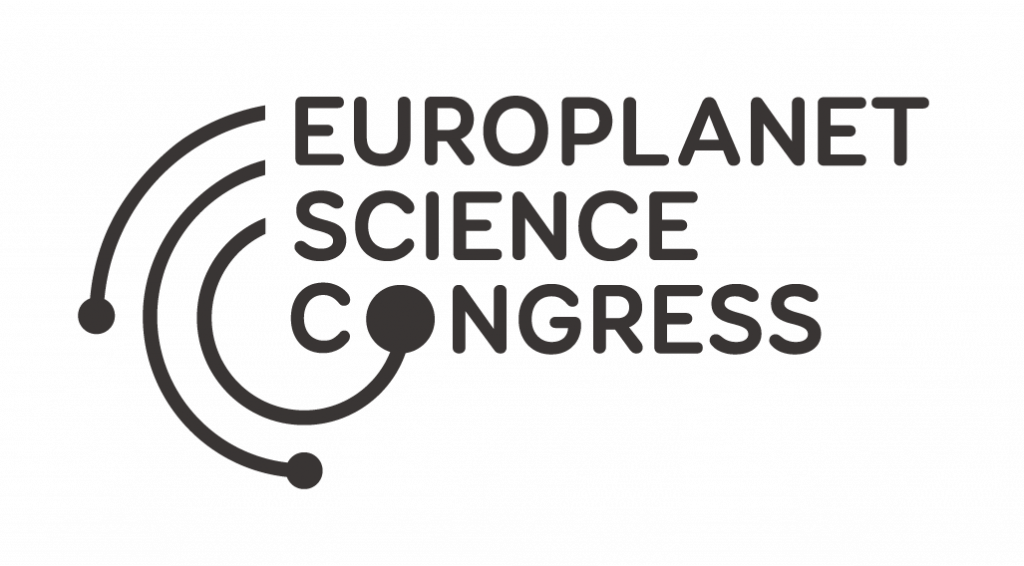EPSC Outstanding Poster Competition
EPSC2022 | EPSC2021 | EPSC2020 | EPSC-DPS 2019 | EPSC2018 | EPSC2017
The EPSC Outstanding Poster Competition is an opportunity for early career researchers to have their work recognised at EPSC.
Posters are judged based on 1) the relevance of the study, 2) the scientific accuracy, as well as 3) the clarity of presentation. Participation is open to all BSc or MSc students, PhD candidates, as well as scientists that obtained their last degree after 1 January in the year that the congress is taking place. Participants need to be first and presenting author of the submitted abstract (please note that a shared award with co-authors or team members is not possible).
EPSC2022 – OPC (Outstanding Poster Competition)
The Outstanding Poster Competition at EPSC2022 attracted 64 entries, and 44 conference participants took time out of their schedules to act as the contest judges. Six winners were selected, who will each receive a certificate and free registration for either the DPS-EPSC Joint Meeting 2023 in San Antonio, USA, or EPSC2024 in Helsinki, Finland.
The winners of the EPSC2022 OPC were:
Nikolaj Dahmen
A Deep Marsquake Catalogue
Amy Tuson
A Search for Long-Period Transiting Exoplanets with TESS and CHEOPS
Cem Berk Senel
Hypervelocity impact simulations of DART on asteroid Dimorphos: Impact-generated porosity and gravity anomalies
Amy Dugdale
Impact generated modification of the mineralogy at Oxia Planum
Ana de Dios Cubillas
Abiotic clathrite synthesis from CO2-clathrate under ocean world conditions
EPSC 2021 – vOPC (virtual Outstanding Poster Contest)
The winners of the EPSC2021 vOPC were:
Liliane Burkhard
Investigating inferred strike-slip features on Titan: Modeling possible shear failure due to tidal stresses and pore fluid interactions
Omar Attia
Coupling the Atmospheric and Dynamical Evolution of Close-in Exoplanets
Vinooja Thurairethinam
Monte Carlo transmission line modelling of multilayer optical coatings for performance sensitivity of exoplanet spectroscopy
EPSC 2020 – OSPA (Outstanding Student Poster Award)
The winners of the EPSC2020 OPSA were:
Moa Persson
Global Venus-solar wind coupling and oxygen ion escape
Claudia Pöhler
The Lunar South Pole-Aitken Basin Region: A New Geological Map
Wayne Gould
Deciphering the Solar Wind at Saturn
EPSC-DPS2019 – OSPA (Outstanding Student Poster Award)
The winners of the EPSC-DPS2019 OPSA were:
Noah Jäggi
Sputtering of Mercury and Moon analogue materials – producing chemically and petrologically realistic samples
Thomas Leps
Simulating Small Body Formation Using Soft Sphere DEM with Induced Magnetic Dipoles
Sascha Janser
Properties of kinetic Alfvén waves along Jupiter’s auroral magnetic field lines
Vladimir Đošović
Habitability of planets in the TRAPPIST-1 system: a potential role of planetesimals
Tomke Lompa
How do impactor and target properties affect the formation of basin structures on the Moon?
EPSC 2018 – OSPA (Outstanding Student Poster Award)
The winners of the EPSC2018 OPSA were:
Šárka Křížová
Sulfide globules in Muong Nong-type tektites from Laos
Jan Vatant d’Ollone
Seasonal variations in Titan’s stratosphere polar regions addressed with a Global Climate Model
Kyriaki Kefala
Planets in your Hand
EPSC 2017 – OSPA (Outstanding Student Poster Award)
The winners of the EPSC2017 OPSA were:
Javier Berzosa-Molina
Traces of exomoons in flux and polarization signals of starlight reflected by exoplanets
Robin Thor
Retrieval of Mercury’s h2 from BepiColombo Laser Altimeter data
Anni Kasikov and Rudolfs Treilis
Methods for Finding New Carbon Stars in the Cassiopeia Constellation
Back to EPSC main page.


